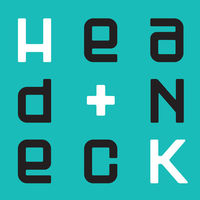Gillies Hospital and Clinics
160 Gillies Avenue
Epsom
Auckland

Mr John Chaplin - Thyroid and Head & Neck Surgeon, Otolaryngologist

Street Address
Postal Address
PO Box 99018
Newmarket
Auckland 1149
Contact Details
Phone (09) 631 1948
Fax (09) 630 8167
Mobile (0272) 970 971
Email john@thyroid.co.nz
Healthlink EDI: headnnek
Websites
www.thyroid.co.nz
www.nosesurgery.co.nz
Tongue Cancer
Tongue cancer presents as a persistent ulcer usually on the side of the tongue. If an ulcer anywhere in the mouth is present for more than three weeks and is progressing, cancer should be suspected. The other common site is the floor of mouth.
Patients may also present with a lump in the neck as these tumours can metastasise (spread) to lymph nodes. These will usually be in the submandibular region or in the upper lateral neck.
For further information on tongue cancer see www.thyroid.co.nz
Treatment of Tongue Cancer
Cancers of the tongue present at various stages of advancement. Early stage cancers are smaller and spread to lymph nodes less commonly. Advanced tumours are larger, involve more tissues and have a higher rate of spread to the neck lymph nodes. Even small tumours have the potential to spread to nodes and treatment of the neck must be considered when treating all cases of oral cavity cancer. Tongue cancers are staged according to the AJCC staging system where smaller tumours (<4cm) are staged T1 and T2 and larger tumours (>4cm) are staged T3 and T4.
Early Tongue Cancers T1 and T2
Most early tumours are best managed by a single modality and surgery is the mainstay of treatment. The portion of tongue containing the cancer is excised with a margin of surrounding normal tissue. The defect is either closed primarily, left to granulate or reconstructed with a free flap depending on the size and components involved.
If the primary lesion is very small (<1cm) and thin (<4mm) and there are no palpable lymph nodes in the neck it may be reasonable to not remove any lymph nodes and await the pathology results of the primary. If there are poor features or the lesion is deeper than 4mm, a neck dissection is recommended. For any T1 lesions larger than this or T2 lesions with a N0 neck, selective neck dissection is recommended.
If there is positive neck disease then a therapuetic neck dissection is recommended and the extent of the dissection depends on the size, number and levels of involved nodes.
Post operative radiotherapy is recommended if there are poor primary pathology features or particularly if there is more than one lymph node involved or there is spread of tumour outside the lymph node (extranodal extension of tumour).
Advanced Tongue Cancers T3 and T4
More extensive tumours usually require combined treatment with surgery and radiotherapy. T4 tumours that involve tissue outside the oral cavity like the jaw or skin can involve complex resections and usually reconstruction with composite free tissue flaps as described below in the section on reconstruction.
https://healthpoint.co.nz/private/ent-head-neck-surgery/mr-john-chaplin-thyroid-and-head-neck-surgeon/